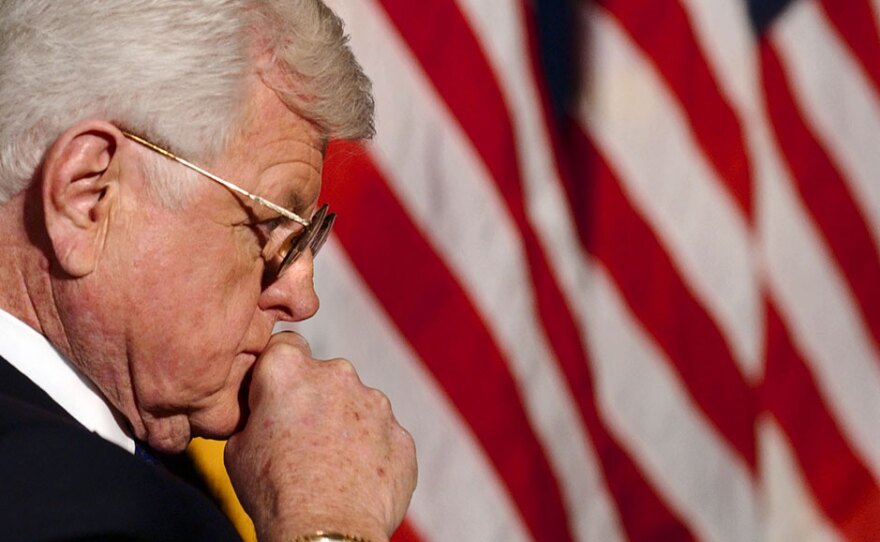Before his death Tuesday, Sen. Edward Kennedy drafted a letter to Massachusetts political leaders, asking them to change the state's law so an interim successor could be appointed by Gov. Deval Patrick.
Under Massachusetts law, voters will choose the successor to Kennedy in a special election in January, but that is too long a wait for many Democrats, because the state would be without what could be a crucial vote as the U.S. Senate debates health care overhaul, Kennedy's lifelong goal.
Patrick said Wednesday that he supports a change in the law that would give him the authority to appoint an interim successor.
"When you think about the momentous change legislation that is pending in the Congress today, Massachusetts needs two voices," he said.
A Change In The Law?
The Massachusetts Legislature is in recess until after Labor Day. The Senate president and the speaker are gauging sentiment toward changing the law. Republicans, who are outnumbered in the Legislature, oppose a change.
Senate Republican Leader Richard Tisei declined to comment Wednesday on legislation that would give the governor the power to appoint an interim successor.
"Right now, we should all take a timeout from politics, and people should take some time to remember Sen. Kennedy and really pay tribute to all the work that he did for decades for the Commonwealth of Massachusetts," he said.
Last week, Tisei pointed out that when Republican Mitt Romney was governor, Democrats passed the law that took away the governor's power to appoint a successor.
In his letter, Kennedy requested that whoever is appointed to fill his seat make an explicit commitment not to run in the special election that will now be held next January.
Possible Successor
It has been a quarter-century since there was a race for an open Senate seat in Massachusetts, when John Kerry was elected.
Among the Democrats considered to have an interest in running are Boston's two congressmen, Mike Capuano and Steven Lynch. Democratic political consultant Dan Payne says Massachusetts Attorney General Martha Coakley is also considered a contender.
"There's a lot of pent-up demand in Massachusetts to elect a woman, especially to the United States Senate, and so she'd have that advantage," Payne says. "Money becomes a very big deal in a special election, because you have to raise a bundle in a hurry, so anybody who's contemplating this is going to have to think about at least $2 [million] to $3 million for a short race, and that rules out a fair number of people who might otherwise be interested."
Rep. Barney Frank, chairman of the House Financial Services Committee, said Wednesday that he would not run for the Senate. In the money race, former Rep. Marty Meehan, an architect of campaign finance reform, has the advantage. He has $4.8 million in his federal campaign account; other members of Congress have far less. Kennedy's widow, Vicki, has also been mentioned as a potential candidate.
On the Republican side, political consultant Eric Fehrnstrom says that in a short race in a state dominated by Democrats, the most obvious Republican candidates are those wealthy enough to finance their own campaigns.
One person who will take a look at it is Chris Egan, a Boston businessman. Egan is the son of Richard Egan, the founder of EMC, the large Massachusetts data-storage company. Fehrnstrom predicts that Egan or another fresh Republican candidate will do what Mitt Romney did in his run against Ted Kennedy in 1994: run and lose, but make a name for himself for the future.
Copyright 2022 WBUR. To see more, visit WBUR. 9(MDAzMjM2NDYzMDEyMzc1Njk5NjAxNzY3OQ001))





